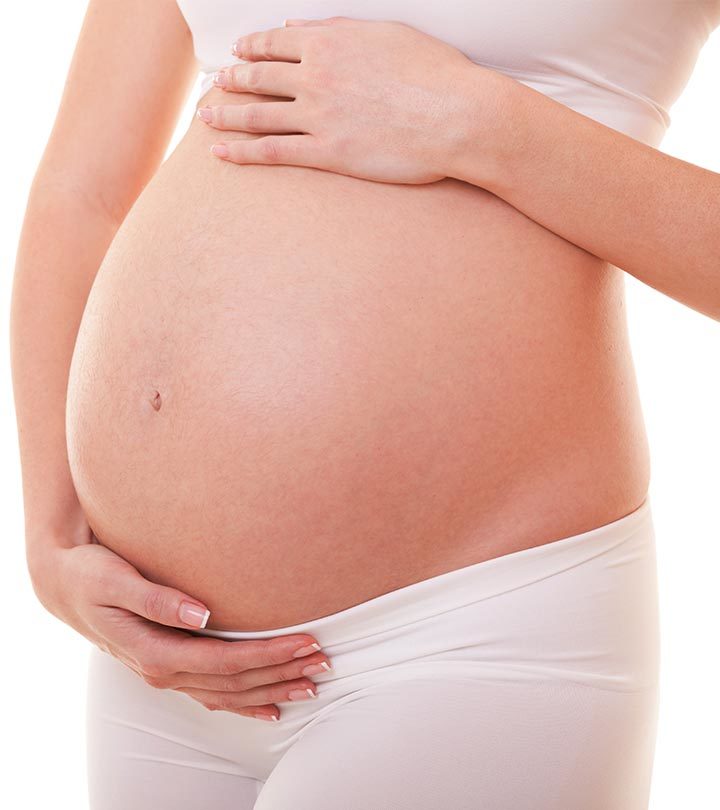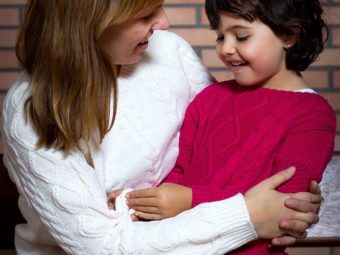
Image: Shutterstock
Remember when you were just about to put your favorite food into your mouth and someone ran to stop you? Pregnancy is a phase that brings about overwhelming changes in a woman physically and mentally.
These changes demand utmost care and precautions, for the safety of your child and you. Maybe that is why people throw in suggestions from all over! Did you frantically search over Google on what things to do and not, what to eat and not? Is pregnancy related information leaving you confused and anxious? Let’s ease you a bit. There are a few things you can continue doing after you conceive but some others would have to be dropped. So, let’s see what’s safe and what’s not during pregnancy.
Things that are safe to do during pregnancy
- Exercises: Exercising during pregnancy helps, it improves blood circulation, helps in carrying more oxygen to the fetus, and eases the delivery. Consult your doctor before you try any new exercise routine when you are pregnant.
- Walking: Walking is safe and good and is recommended till the 44th week. It increases your chances of normal delivery.
- Prenatal yoga: Yoga during pregnancy can help you relax and remain stress-free. Simple squats increase chances of normal delivery. You could sign up for Lamaze classes for safe childbirth and labor.
- Asthma medications: If you have asthma, then don’t stop taking your medications as it can trouble you. Asthma when uncontrolled could pave way to complications such as premature birth, poor fetal growth, and low birth weight. Consult your doctor to check on your condition so that he can adjust the dosage of the medication accordingly.
The list of things that are not safe to do during pregnancy is pretty long. Let’s begin with activities to avoid during pregnancy:
- Lifting weights: It can lead to miscarriage in the first trimester. In the last trimester, it can induce early labor.
- Sports: Women who are active in sports could find it challenging to remain idle, but it’s advisable to stay away from all kinds of sports that exert you during pregnancy.
- Amusement park rides: You might feel that the baby is safe in the first and second trimesters, but there is a risk to your placenta which causes placental abruption. No matter how adventurous you are, don’t go for rides. It can result in premature birth and other complications.
- Bicycling: Cycling until the second trimester should be alright, but not beyond that as the balancing gets tougher with your growing bump and shift in your center of gravity.
Foods and drinks to avoid during pregnancy
- Unpasteurized cheese: Cheese made from unpasteurized milk is not safe as it may contain bacteria. Cheese made from goat and sheep’s milk cause listeriosis, which is one of the causes of miscarriage (1). Stay away from mold-ripened cheese, soft cheese, and unpasteurized cheese. Hard cheese, even if it is made from unpasteurized milk, is safe to eat as listeriosis risk is low.
- Tuna, meat, and shellfish: Avoid seafood that is not cooked (yes, sushi is on the list). Oysters, mussels, and clams, poorly cooked beef and poultry are a few things you should keep away from. These can be contaminated with toxoplasmosis or salmonella. Avoid fish with a greater amount of mercury such as swordfish and tilefish. Eat tuna moderately as it has low levels of mercury. Avoid smoked seafood such as lox, kippered fish, and salmon. They could be contaminated with listeria.
- Raw eggs: Read as raw and uncooked eggs. This means you need to stay away from Caesar dressings, mayonnaise, and custards. So, avoid consuming raw or half cooked eggs as they can increase the risk of salmonella infection.
- Caffeine: Caffeine can be an easy bet to beat lethargy and those annoying mood swings. But, the downside of it is that its harmful to you and your baby. It reduces blood flow to the fetus and reduces iron absorption, affecting the baby’s growth.
- Alcohol and smoking: Alcohol and smoking a big NO. Alcohol passes through the bloodstream into the placenta, and your baby receives that. As the fetus is still growing, there are high chances of your baby developing fetal alcohol syndrome and can have mental or physical abnormalities. There is a risk of premature birth or even a miscarriage. Smoking reduces the oxygen supply to the growing fetus that can result in poor fetal growth and hearing disabilities (2).
Other things to avoid during pregnancy
- Gel manicure: We women love to pamper ourselves all the time, and pregnancy is a perfect reason to do so. But, the chemicals used in gels are harmful to your baby. These chemicals can be absorbed through the bed of the nail. And the UV rays used to set the gel leads to hyperpigmentation, wrinkles, and cancer cells on your hand. Use a fan to dry your nails instead of UV light.
- Medications: Avoid over-the-counter medicines for headaches, cold, and fever. Consult your doctor before you take any medication. The chemical compositions in these medications can be harmful to your baby. Strictly avoid them in the first eight weeks of pregnancy as it’s a crucial time for the formation of the baby’s brain, heart, and lungs.
- Facials: Facials and chemical peels can irritate your skin as your skin is super sensitive at this time. So, avoid them or go for facials that have fewer chemicals.
- Smartphone: Avoid your smartphone! Rather act smart with your smartphone by maintaining a safe distance between your screen and tummy. Use your hands-free while you are on the phone. Don’t get stuck on your phone staring at it for hours. Go easy on your lower back, take a break, and move around.
- Getting a tattoo: Getting yourself inked increases the risk of skin infection. There could be chances of contracting Hepatitis B or C from those needles. However, there are no studies on the effects of ink on the growing embryo.
- Wearing heels: Wearing heels will not only hurt your feet but there are chances of tripping, and that could be dangerous. Edema is common during pregnancy. So wear footwear that’s comfortable for your swollen legs.
It’s always better to be safe than sorry. Pregnancy is a not the time to take chances. Instead, you need to relax, walk, eat healthy, and get some good sleep. And when in doubt, consult your doctor without further hesitation.
Do let us know your opinions by commenting below.













